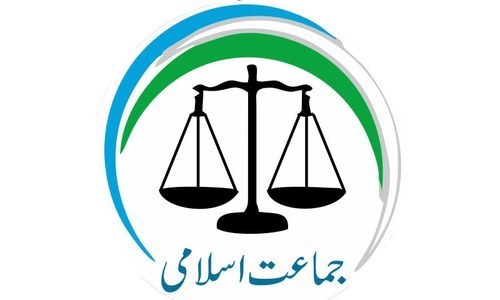𝐀𝐫𝐭𝐢𝐜𝐥𝐞 𝟔𝟐 (𝟏) (𝐟) 𝐢𝐬 𝐧𝐨𝐭 𝐒𝐞𝐥𝐟-𝐞𝐱𝐞𝐜𝐮𝐭𝐨𝐫𝐲. 𝐋𝐢𝐟𝐞𝐭𝐢𝐦𝐞 𝐃𝐢𝐬𝐪𝐮𝐚𝐥𝐢𝐟𝐢𝐜𝐚𝐭𝐢𝐨𝐧 𝐢𝐬 𝐚𝐠𝐚𝐢𝐧𝐬𝐭 𝐭𝐡𝐞 𝐈𝐬𝐥𝐚𝐦𝐢𝐜 𝐈𝐧𝐣𝐮𝐧𝐜𝐭𝐢𝐨𝐧𝐬: SC
The Supreme Court has released its detailed judgment in the disqualification case under Article 62 (1) (f) of the Constitution. The seven-member larger bench ( justice Yahya Aftridi dissenting) has held that the said Article is not self-executory, which implies that this Article cannot be put into motion unless the Parliament has enacted a law which specifies the procedure for disqualification of member of the Parliament, due process of law and confers jurisdiction on a specific court that can take cognisance of the matter. Unless such is enacted, the said “Article stands on a similar footing as Article 62(1)(d), (e) and (g), and only serves as a guideline for the voters in exercising their right to vote.”
The Court has further overruled the Sami Ullah Baloch case which had almost ruled that disqualification of member may last forever. This case does not explicitly mention that declaration shall last for lifetime, but the ultimate consequence of the reasons of Sami Ullah Baloch case necessitates that disqualification might last for lifetime. The Court in the current case not only overruled its earlier judgment but has also held that lifetime disqualification is against the fundamental rights, international law and more so the Islamic Injunctions.
𝐎𝐩𝐢𝐧𝐢𝐨𝐧 𝐛𝐲 𝐇𝐨𝐧𝐨𝐫𝐚𝐛𝐥𝐞 𝐉𝐮𝐬𝐭𝐢𝐜𝐞 𝐒𝐲𝐞𝐝 𝐌𝐚𝐧𝐬𝐨𝐨𝐫 𝐀𝐥𝐢 𝐒𝐡𝐚𝐡:
Honorable Syed Mansoor Ali Shah has appended his separate opinion which is well-reasoned, well-authored and well-grounded. His opinion says that Islamic Injunctions does not close the door of repentance and reformation. This door is always open for a sinner and one may repent anytime and revert to the previous position. Referring to The Shariat Enforcement Act, 1991, his lordship wrote that it is for now settled jurisprudence our jurisdiction that when tow interpretations are possible, one which accords more with the Islamic Injunctions shall be adopted and followed. Article 62 does not disqualify a person for a lifetime. It does not mention any duration for disqualification. In such an eventuality, fixing a duration for disqualification and that too for a lifetime would amount to too much reading into the Constitution. Hence, the previous cases including the Sami Ullah Baloch case which determined not only the duration of the disqualification period but had also determined the forum for redressal were overruled by the Supreme Court.
c.a._982_2018_19022024




